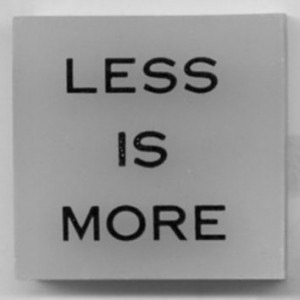Leadershiplessness

Of course I was engaging in what we introverts do so well: blurting. It’s our greatest gift and, sometimes, our very worst enemy. My moments of greatest inspiration have all come from blurting. My greatest humiliations, too. I’ve spent much of my life canned up trying to tame this wild beast. It’s usually better for me when I open my can of worms with little deliberation. Though I might appear insensitive then, at least I appear.
I am surrounded by reminder memes encouraging me, on the surface, to lead. But a quick trip through my new filter seems to transform this clarity into a useful momentary muddle. I’m never certain what’s intended. My colleague Steven Snyder, who’s new book’s title Leadership and the Art of Struggle (Berrett-Koehler 2013) includes my trip word tells a complicated story. For me, he uses Leadership to mean inspiration. When I read and reviewed the book, what stuck for me was not some abstract, enthusiasm-engendering exhortation, but the uber-serious understanding that without personal struggle, nobody’s likely to inspire anyone, including them self. So I internally translate Steven’s ‘leadership’ into ‘inspiration,’ and my momentary muddle’s resolved.
Often, I find writers using ‘leadership’ when they seem to mean ‘inspiration.’ Peter Block might have nailed something significant with his book Stewardship (Berrett-Koehler 1993-1996). My friend Ira Chaleff avoided my dreaded ‘L’ word with his The Courageous Follower (Berrett-Koehler (1995, 1998), which distracted attention in a direction useful for everyone labeled ‘leader,’ and also for everyone labeling another with that dreaded ambiguity.
I’m clearly not alone in my sensitivity. And what’s a writer to do? Leadership sells, maybe because it’s so inherently entrancing. Perhaps it’s what Damon Runyon called ‘a dodge.’ A dodge is what a gambler tells his mother he does. For years, I advertised that I taught a project management class, though many, at the end of the workshop, noted that the experience seemed to have more to do with clarifying personal approaches to life than with project management. For me, project management training was never much more than a dodge. A way to describe the fundamentally indescribable in easily acceptable terms. Sure, a dodge always misrepresents the underlying intention, but probably because there could be no way to attractively explain anything so subtle, so context-dependent, so ... fundamentally indescribable.
Woe to anyone unaware of this universal convention. The most meaningful intentions come wrapped in utter gibberish, and must be. This cannot be a shortcoming; it must be a feature. It’s always up to me to unwrap the package and make my own meanings. When I forget, I make myself smaller and inflate some hapless other into the leader of me; a fundamental abrogation of my most sacred personal responsibility.
My parsing continues, in greater earnest now.
©2013 by David A. Schmaltz - all rights reserved


